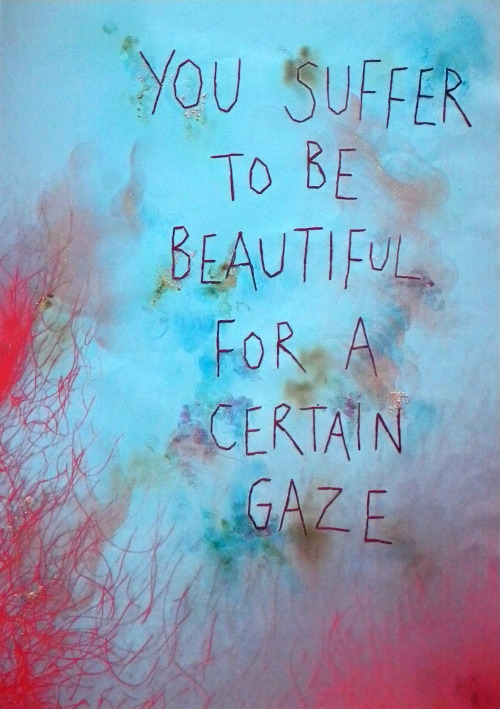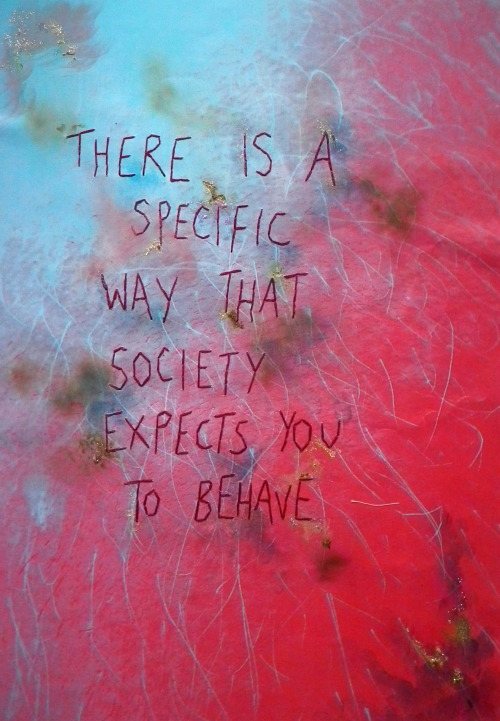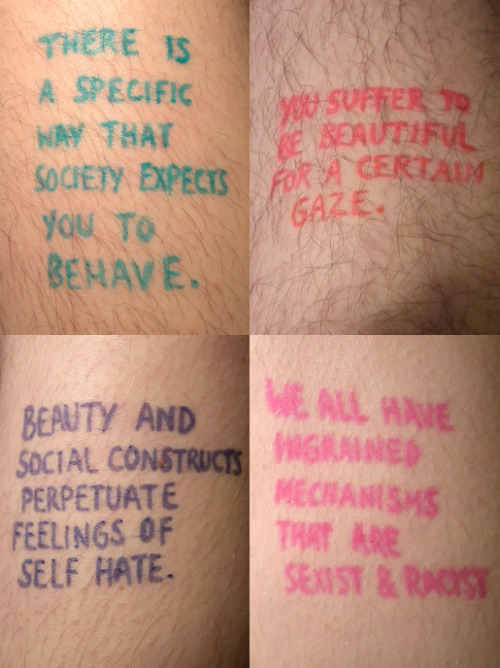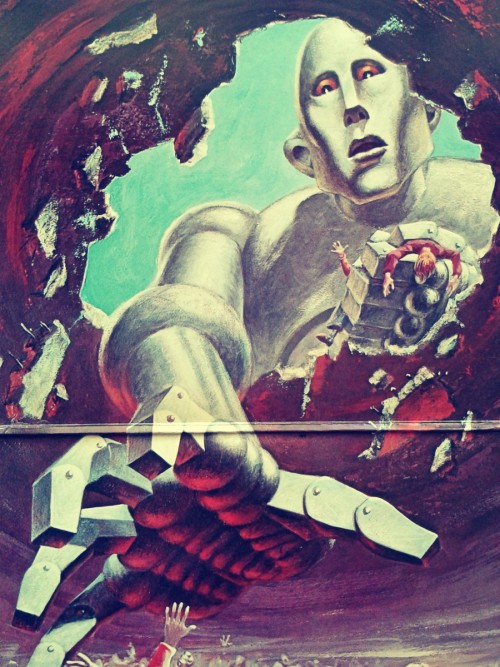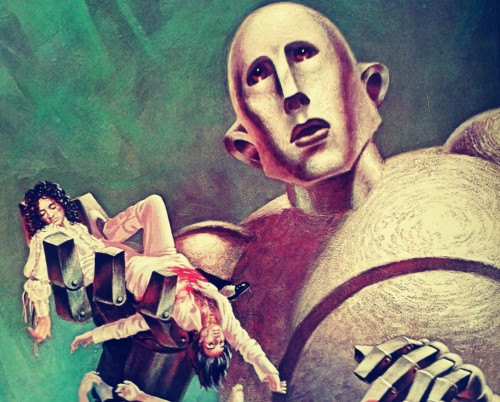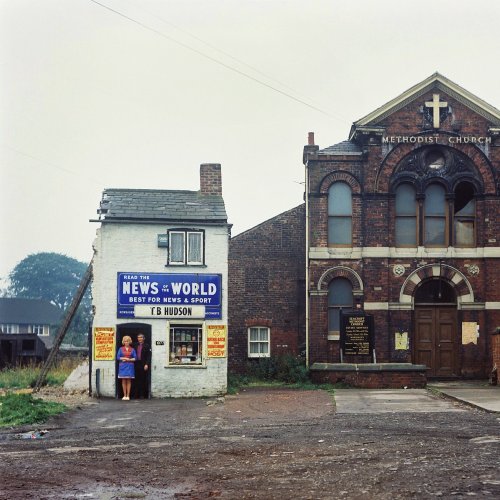#news of the world
On the way to News Of The World (from Freddie Mercury’s interview with Kes Baars for the Dutch magazine OOR; Frankfurt, May 15, 1977):
Kes Baars: Do you plan to repeat the scheme of the last two albums, with four months in the studio and the subsequent release of an excellently produced album?
Freddie Mercury: No, we’re not doing that anymore. When this tour ends (A Day At The Races Tour'77), we will have three months to record a new album, but we want to record it in two months, without much polishing and excessive use of sound effects.
By the way, our experience in the studio is so great now that we do not need to spend so much time recording polyphonic compositions or something like that. We don’t have a specific concept for the next album yet, but it’s going to be a hard and energetic album, with a few of Brian’s acoustic compositions and more piano parts than usual.
The album is expected to be released in October (October 28, 1977). This is very important in connection with Christmas: before the holiday albums are always sold well. And it’s kind of a tradition for Queen to release a new album at the end of the year.
Kes Baars: What do you think about the modern rock scene and what place does Queen occupy on it?
Freddie Mercury: There’s no rock scene now, is there? There hasn’t been any decent new stuff coming out in recent years, and the whole scene is still determined by the names that came out in the ’ 60s.
Queen is an important part of the music of the 70s, because for several years you have been constantly hearing or reading what some bands compare to us. If the group has a different style of music or she works with a well-balanced vocal, people will say that it looks like a Queen. This is a confirmation that we as a group have won our niche. I am very pleased with this, but we had to work hard.
(Kes Baars didn’t talk about punk bands that were ubiquitous in 1977. But he tried to provoke discussion).
Kes Baars: What about the debut album of a band like Boston? [in particular, More than a feeling]
Freddie Mercury: I only listened to them once. It’s a lot like Queen, isn’t it? Well produced, but nothing special. After all, the boy [Tom Scholz] seems to have been grinding these few songs for years in his studio.
Kes Baars: I think it’s a very good album after all.
Freddie Mercury: Ok, that’s your opinion. You know what it is, almost all American bands have been trying to imitate British bands for years, but they lack the style of British bands. Technically, everything is fine, but that doesn’t mean anything. There are a few exceptions, like Eagles and Aerosmith, which are limited to one direction, and I think these are decent bands. Eagles is a good example of a truly American band.
Photo by Jorgen Angel (Copenhagen, 13 may 1977)

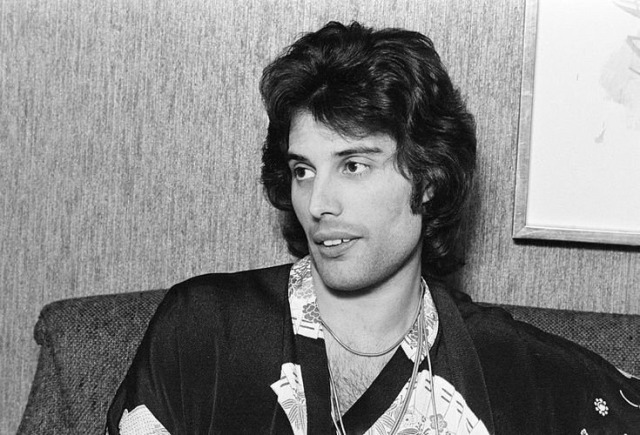

Freddie Mercury’s experience with the press
(from an interview with Kes Baars for OOR magazine,Netherlands, May 1977)
Kes Baars: What is your experience with the press?
Freddie Mercury: The British press is using every opportunity to inflate the sensation. It’s been years since I last spoke to a British journalist. Everything you say is distorted to make the story as sensational as possible. And they ask stupid questions, like why I don’t paint my nails anymore, or why I say «darling» to an audience.
I no longer give interviews to the British music press. The worst of all is New Musical Express. As for the press outside England, I will say that I am very critical of interviews and rarely give them. I only want to talk to people who know music and can ask competent questions. If I want to talk to someone, I’ll pick an interviewer. Now I’ve only agreed to a couple of interviews because we haven’t played in continental Europe for more than 2.5 years.
Even in America, I only spoke to select journalists such as Mick Brown of Rolling Stone, Lisa Robinson, and Robert Hilburn of the Los Angeles Times. But in General, I have a bad experience with the music press.

May 14, 1977
Queen concert in Festhalle, Frankfurt.
Freddie Mercury on the Frankfurt concert and the European tour A Day At The Races (excerpts from an interview with KES Baars for the Dutch magazine OOR; Frankfurt, May 15, 1977):
Kes Baars: Last night [at a concert in Frankfurt] I noticed quite a lot of parents with children of different ages. Many parents just put their children on their shoulders.
Freddie Mercury: Great. Real proof of what we’ve always wanted: to reach as many people as possible with our music. By the way, I also noticed. First time on open air in Cardiff last summer. Then I everywhere I saw children on the shoulders of parents.
Kes Baars: it’s obvious that now you’ve managed to reach too large an audience, with the result that only a few people love all your songs.
Freddie Mercury: There is. But this is the only way: to play in a variety of musical styles, so that you as a group could not hang a label. It happened at first. Many journalists considered us a teenage or heavy band with a focus on vocals. In fact, we were neither. Of course, we had songs that could be attributed to a particular direction. Now, fortunately, not so.
Kes Baars: Why is there no warm-up on this European tour?
(Freddie is silent for a moment, pretending to think.)
Freddie Mercury: In any career there comes a stage when you can no longer do it. Our show was such a bright and spectacular event that it would be inappropriate to work with the opening. Besides, it takes too much time: our concert goes on for more than two hours, and since we have very young fans, the evening will end too late for them. Soon our show will go even longer due to even more effects.
At the moment we are working on the integration of the video in the show, and there are still a lot of ideas. Hopefully, when we play at Earl’s Court this summer, a new stage will be ready (approx. – will). We believe that these two London shows will be a kind of run-in for the American tour, which will start on October 11 and will again take three to four months.
After that, I hope I’ll be free for a while. I have a beautiful home, but I hardly ever go there. Everywhere in the world, especially in Japan, I buy antique furniture and paintings, and I don’t even know what they look like. But that’s life.
Live photos of Queen: Frankfurt, May 14, 1977 (taken by Peter Staecker):




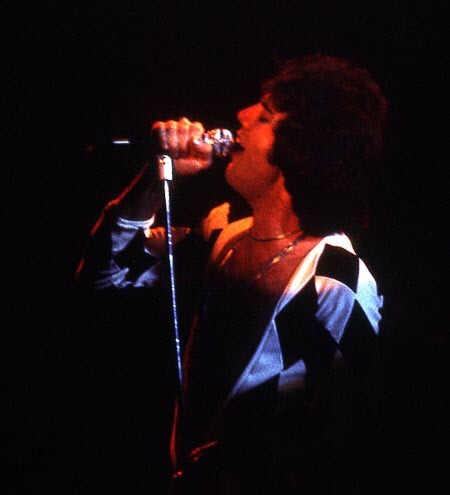



+ photos for the interview:

EMI party in Rotterdam; April 20, 1978.

Queen and Lisa Robinson at EMI party in Rotterdam; April 20, 1978.
Brian May: Enlightened Monarch
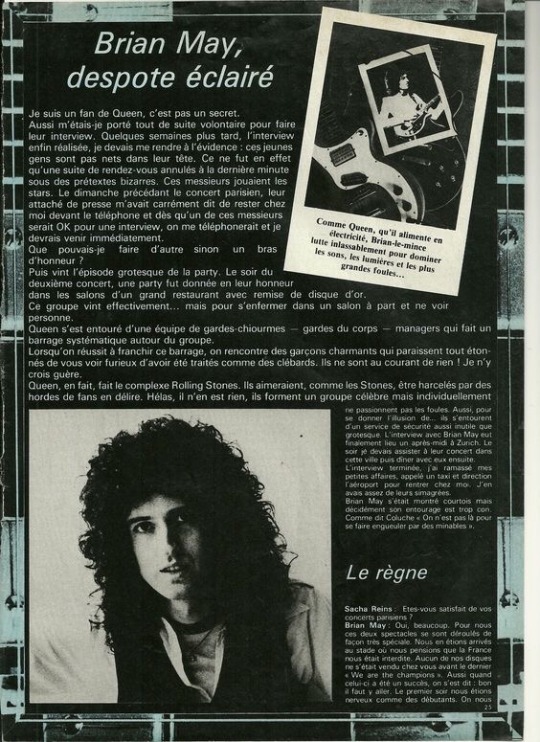
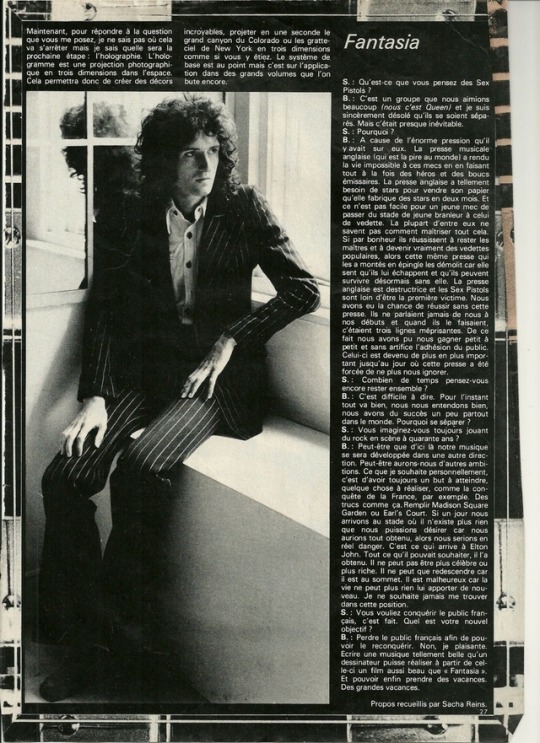
Author: Sacha Reins (Best, №118, May 1978)
It’s no secret I’m a Queen fan. So I volunteered for an interview. Now, after a few weeks, when the interview took place, I admit the obvious: these young people have their own cockroaches.

[Sacha Reins, 70s]
It was a series of last-minute and appointed interviews that were cancelled under strange pretexts.
The sirs took a star. On the Sunday before the concert in Paris, their press agent told me to stay at home on the phone, and as soon as one of these gentlemen is ready for an interview, I will call, and I will immediately have to come. What was I supposed to do, send them away?
Then there’s this ridiculous party. On the night of the second concert in the hall of a chic restaurant in their honor was a party where they were handed gold discs.
The group arrived … and locked in a private office, so they wouldn’t be disturbed.
Queen is constantly surrounded by a team of security guards-bodyguards-managers who systematically block the group.
As soon as you manage to overcome this dam, you come across charming guys who pretend to be surprised to see you furious at being treated like pigs. They know nothing! I don’t believe that.
Queen, in fact, suffer from a complex of Rolling Stones. Like the Stones, they want to be chased by hordes of crazy fans. Alas, this is not so, they are part of a well-known group, but individually do not cause delight in the crowd. And so to create an illusion … they surround themselves with a whole retinue and security service, as useless as grotesque.
An interview with Brian May took place one day in Zurich. In the evening I had to attend their concert and then have dinner with them. The interview ended, I took my things, called a taxi and went to the airport to go home. I’m tired of their antics. Brian May was very courteous, but his entourage certainly sucks.
Monarchy
– Are you satisfied with your Paris concerts?
Yes, very. For us, these shows were held in a very special way. We were beginning to think we were banned from France. None of our recordings were sold here until We Are The Champions. And as soon as this single was a success, we said, well, it’s time to go. The first night we were very nervous. We have been told so many times that the Paris audience is one of the most difficult in the world! We were very careful the first night, almost closed, and I think the audience felt it. The second night was completely different: contact had already been established.
– I attended this concert, and several times you made me think of Led Zeppelin because of the music and the peculiar interaction between you and Mercury.
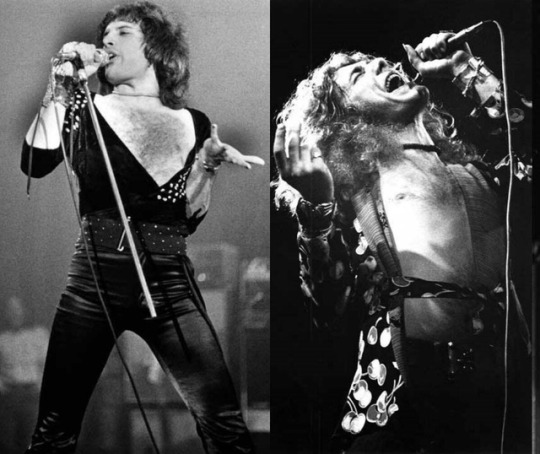
– This is not the first time when we are compared with LZ in one or another plane. In fact, I think there was a lot more common ground between Queen and LZ a few years ago when we started. But now we have moved away from this form of hard rock, we have developed our own harmonies, a style that belongs only to us. However, LZ and we follow similar routes because, forming as musicians, we were influenced by the same people.
– Is there any stage rivalry between you and Mercury?
– No, we are too close, we know each other too well, we had too many common problems. Freddie is the natural point of attraction of the group, and it’s good that he realizes his charisma in this way.
The first person the viewer watches will always be the lead singer and then the guitarist. Therefore, it would be foolish to try to fight with Freddie for power on stage. Especially since he’s a fantastic showman.
– No leader in the group?
– No. Whenever we make a decision, whether it’s our business or music, we meet all four of us together, have a long conversation, and then decide what we’re going to do.
We complement each other. Specifically, John Deacon deals with money. Roger Taylor is responsible for our communications with the outside world, I mean the outside world in relation to Queen.
– In this sense, I found that your behavior in Paris was a little strange. All of these appointed and revoked by the miserable occasions interview. This ultra-twitch security that has built a wall around you. This ridiculous party, when you took a private office with a thug at the door, which blocked access to other guests. As if journalists or promoters were going to attack you! It was all very strange.
– For our image well, that we look as excessively guarded and hard-to-reach group. So even more people will be interested in us. As for the party, I don’t remember it very well.
Equipment
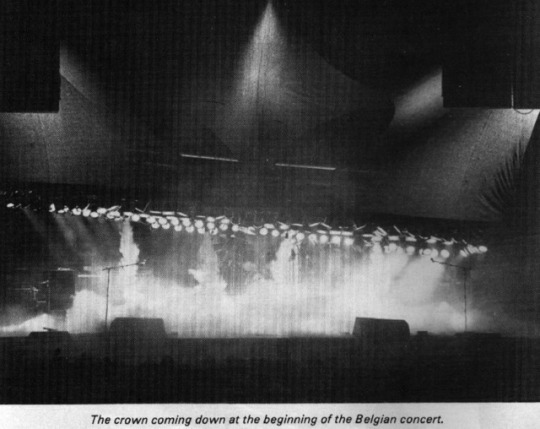
– Keep going. Who gave you the idea of this light installation?
– Nobody, we developed it a year ago with the help of our engineer Jerry Stickels.
– So she came before «Close encounters of the third degree»?
– Long time. So this similarity between the spaceship from the movie and our glowing crown is very strange. Americans were struck by this similarity. We receive many letters on this subject.
– You have a lot of stage equipment. This is a device that endlessly reproduces the sound of the guitar, have you been using it for a long time?
– Since 1972. It was necessary for us from the very beginning, but we had no money, we were able to buy it only in 72-m. This is a rather complex device. It took me a long time to learn how to handle it properly, and I also changed it so that it could play two different sounds indefinitely. Now I know it perfectly and can use it to play harmonies, counterpoints, chords.
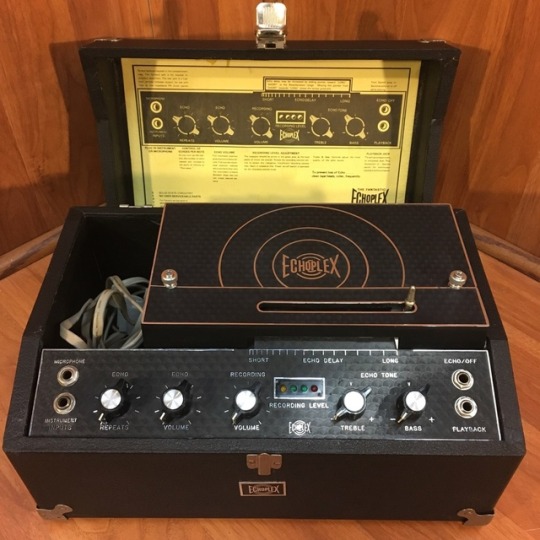
[Vintage 1970’s Maestro Echoplex EP-4 Solid State Tape Delay]
The trickiest thing is to perfectly tune the scene so I can hear exactly how the sound goes and comes back. If for some reason it is hard to hear what is happening, it is a disaster because I do not know how often to put a refund. But this has not happened for a long time, because now we have everything we need on stage.
We are sometimes criticized for the fortune we have invested in our equipment. This kind of criticism is quite inappropriate, because if we spend so much money on equipment, it’s all for the audience to be satisfied, both visually and musically.
You see, we’re interested in being able to play back what we’re doing on the record. Complex harmonies and all that. But there are only four of us. We need the help of electronics, so Freddie and I are using these devices with endless echoes. We don’t want to play pre-recorded tracks like some bands do. We don’t think it’s fair.
– But you use the entry in Bohemian Rhapsody…
– Yeah, but that’s different. The BR passage you are referring to is a complete reproduction of a studio recording. We recorded this song as an Opera. Each of us sang about twenty different parts to reproduce exactly one big classical choir. It is absolutely impossible to perform on stage. We tried it a few times, but it sounded really bad compared to the album version, so we decided to play a pre-recorded Opera passage. But to avoid any doubts or misunderstandings, we give these recordings in complete darkness and do not appear until the hard rock part, which we play live. It’s more honest.
– Where do you get all these classical and Baroque allusions that your music is filled with?
– I don’t know, because none of us have any real classical foundations. I think that all this comes from the depths of our childhood memories, when our parents listened to waltzes on the radio, brass bands in parks on dundays. It must have come from there.
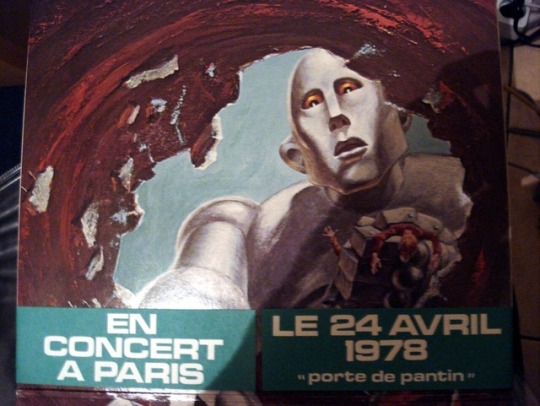
– Your latest album, News Of The World, doesn’t have enough references to Baroque.
– Yeah. We went back to pure hard rock. Without excesses. We’ve come a long way in the Baroque style, a cross between Opera and rock, and I don’t think we could have been more successful than with A Night At The Opera. That’s why we came back to more unpretentious music.
– A Night At The Opera sold best, so don’t you think you’ve disappointed a large audience who liked these musical tricks?
– We always disappoint someone, no matter what we do. When we started working with the Baroque style, we disappointed our first fans who loved us for our pure hard rock.
– They say you don’t take vacations.…
– Yes, we work hard. Every year we lock ourselves in the studio for two or three months, then we go on a two-month American tour, then we spend two months in Europe, two months in Japan and Australia, and when it’s over, it’s time to go back to the studio for the next album. We have been living in this rhythm for five years.
– Bands like Queen and all the major British bands we’ve seen in recent years have been getting more and more stage equipment. Now everyone has lasers, bizarre scenes, smoke generators, etc. When will this arms race end?
– Never. Show business will always follow with interest the development of technology in all that relates to audiovisual information, and use it to create even more pompous, beautiful and impressive shows. However, there is a very clear reaction from part of the public (I’m talking about the rock audience), especially in the UK, where most young people want the bands to return to the adequate stage art as it was ten years ago.
I don’t mind, but here we are faced with a mathematical impossibility. To play without assistive devices, you will have to work in small halls, even in clubs where your creative energy is in direct contact with your audience. There really is no need for a rotating stage and smoke, everyone is in direct contact with the music. But the famous band will no longer be able to play in small halls.
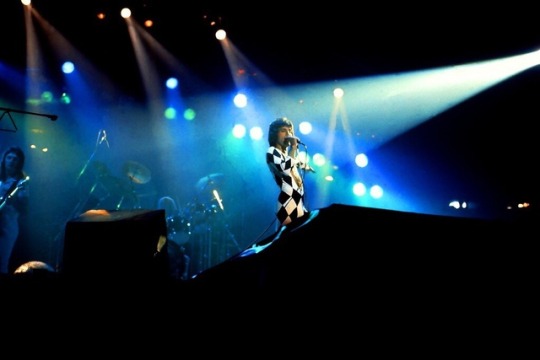
[News Of The World Tour]
Look at Paris, in two days we performed in front of 18,000 people. In a hall with two thousand seats we would have to play for everyone nine days in a row and eighteen days – in the club. At this rate, it will take us ten years to travel around the world, it is unthinkable. That is the only way to have time everywhere – to play in the huge halls (and believe me, Pavillon de Paris – not the biggest).

[Pavillon de Paris (aka Les Abattoirs de la Villette – “Slaughterhouse in La Villette”); as a concert hall for about 10,000 spectators, the building was used from 1975 to 1980.]
Now, about the question you asked me. I don’t know how or when it will end, but I know what the next step is: holography. A hologram is a three - dimensional photo projection in space. It will be possible to create incredible scenery, in a second to project the Grand Canyon of Colorado or skyscrapers of New York in 3D, creating the illusion of full presence. The basic principles are developed, but everything else is still in the process of testing for wide application.
Fantasia
– What about Sex Pistols?
– It’s a band that we really like (“we” means Queen) and I’m really sorry that they broke up. But it was almost inevitable.
– Why?
– They were under too much pressure. The British music press (the worst in the world) has made the lives of these guys unbearable, making them both heroes and scapegoats. The British press, to keep circulation, so needs in stars, that fabricates new names for couple of months. And an ordinary boy is not easy to survive the rapid transformation from a young nerd to a star. Most young talents don’t know how to handle it. If by a Fluke they stay on the horse and become really popular stars, then the same press that inflated the whole story, smears them on the wall, because it feels that they are out of control and will be able to do without her support.
The British press is destructive, and Sex Pistols is not the first victim. We had a chance to succeed without the press. When we started, we were not written about, and when it did happen, the whole thing was limited to three contemptuous lines. As a result, we were able to gradually and without their help to gain the trust of the public.
– How long will you stay together?
– Hard to say. At the moment, everything is fine, we get along well, we are famous all over the world. Why run away?
– Do you see yourself on the rock scene in forty years?
– Perhaps by that time our music will develop in another direction. Maybe we’ll have other ambitions. Personally, I am always guided by some achievable goal, to conquer France, for example. Or something like that. Make a full house in Madison Square Garden or Earl’s Court.

If one day we reach the point where all desires are fulfilled, because we have already achieved everything, it will become a serious problem. That’s what happens to Elton John.
Everything he could wish for, he had already received. He was not destined to become more famous or rich. He can only go down, because already at the top. He is unhappy because life cannot give him anything new. I don’t want to be in this position.
– You wanted to conquer the French public, and you did it. Got a new target?
To lose the French public, so that there is a goal to return it. No, I’m kidding, to compose music so beautiful that animators could create on its basis at least the same beautiful cartoon as Fantasia. And finally take a vacation. Long vacation.
Source:http://queenfrance.online.fr/htm/presse/article3.htm
Translated from French: @gefuhl-des-zweifels

I love these men
10 quotes, the corresponding information and the process and techniques to use for each of them:
1. “STOP POINTLESS JUDGEMENT’
‘we will challenge each other and the world and we will stop pointless judgement’ is the manifesto of the Happy Hippy Foundation, a charitable organisation founded by Miley Cyrus. Their mission is to ‘rally young people to fight injustice facing homeless youth, LGBTQ youth and other vulnerable populations’.
I will use a mixture of letters cut out from skin, and stamping the letters then embossing them creating a textured effect.
2. ‘BEAUTY AND SOCIAL CONSTRUCTS PERPETUATE FEELINGS OF SELF HATE.’
quote from Tyler Ford, agender writer, model and LGBTQ consultant. The media and society continually portray the idea that you have to look and act a specific way in order to be viewed as beautiful. These ideals are often unrealistic and unattainable, which is harmful because people are left feeling inadequate and unhappy with how they and their bodies look.
I will use one of the skin photographs as the background, embroider the words on and add glitter, embossing powder and ink, and burn into it.
3. ‘WE LIVE IN A DEEPLY MISOGYNISTIC SOCIETY’
Misogyny runs very deeply within our society, and men and boys often act towards women and girls in an extremely predatory manner. Men continually oppress women, and treat them like objects for them to own, it’s a man’s world that we live in.
I will use a blue background, then use a bold black font with the letters individually cut out, and then collage it with ink, embossing powder, glittery nail varnishes and heat it up, burning into the paper.
4. ‘YOU SUFFER TO BE BEAUTIFUL FOR A CERTAIN GAZE.’
Quote from Fanny Sosa, artist and activist. The male gaze is the idea that men are active and dominant whilst women are passive and submissive, and attempt to full fill the ideal expectations men set up for them. Feminine beauty practices show the extent that women go to, to make themselves acceptable for the male gaze, because ‘looking good is a caae of looking good for men.’ - Gender and Popular Culture
This will be on a background of a photo of skin with sewing, glitter, embossing powder and heating it up.
5. ‘RAISE BOYS AND GIRLS THE SAME’
It is important to raise children the same regardless of gender in order to break down these harmful gendered stereotypes. Children are very impressionable and breaking down these expectations of what it means to ‘be a man’ or ‘be a woman’ is an important step to achieving a more equal society.
I will make a background using inks, different embossing powders, glittery nail varnishes, and wax crayons and heat it up in different areas creating lots of texture, and then use a bright pink paper and cut all the letters out individually and lay it over the textured background.
6. ‘WE ALL HAVE INGRAINED MECHANISMS THAT ARE SEXIST AND RACIST.’
-quote from Fanny Sosa, artist and activist. The Western society is controlled by the patriarchy and white supremacists. In everything we see and do, ideal and expectations are continually forced upon us and many of these stem from sexist and racist frameworks. This is something that is important to recognise, and we must work together to fight against these ideas.
This I will also do using the skin photograph with embroidery and texture with glitter and embossing.
7. ‘THERE ARE MORE THAN TWO GENDERS.’
Gender is a social construct and it is very ignorant to say that there is nothing beyond ‘man’ and ‘woman’. Rather than viewing gender as these two distinct categories, it should be viewed as a spectrum, with a‘multidimensional array of possibilities.’ For more information visit genderspectrum.org.
8. ‘THERE IS A SPECIFIC WAY THAT SOCIETY EXPECTS YOU TO BEHAVE.’
Gendered stereotypes are continuously used in the media, for example in advertisements, often in subtle and overt ways but these fuel the idea that there is a specific way that society expects us to behave, which enforces conformity. Concepts of masculinity and femininity are social constructs and are not something that individuals should feel that they have to conform to.
This also will be a photograph of skin as the background with embroidery, glitter, embossing powder, ink and it heated up burning into it.
9. ‘COLOURS ARE NOT GENDERED.’
The gendered stereotype that is constantly reinforced says pink is for girls and blue is for boys, which is something that clothing companies aggressively market. It is harmful to push these gendered stereotypes onto children as it enforces the false idea that there is a specific way that boys or girls must be.
This will be done creating a textured background with ink, embossing powders, glittery nails varnish and crayons and heated up, then another layer in blue with the letters all hand cut out and layered over the top.
10. EDUCATION SHOULD NOT BE LIMITED TO THE HISTORY OF WHITE MALES.’
Education is hugely shaped by colonialism, placing white, Eurocentric writers, thinkers and activists and artists etc. above others. Many women and people of colour’s voices and histories are silenced and erased, in the place of white, Eurocentric males. Curriculums greatly need to be diversified. For more information visit www.nus.org.uk Why Is My Curriculum White?
This will be done on a pink background, with the text in a large bold font and the letters individually cut out, then texture created around it with inks, embossing powder and glittery nail varnishes, heated up and the paper burnt into.
For the front cover I am going to use FUCK WOMEN* with their consent. This bold derogatory statement will hopefully draw in people’s attention. By using this I hope that it will make someone look at the product who would otherwise be unlikely to view something on feminism. I want it to be something that spreads a message, to people who are less educated on the subject, ignorant or who take Emily Hill’s stance that feminism is no longer needed, to teach them how this is not the case. The cover will either be like a sleeve with the letters hand cut out and a glittery background underneath, or I will make it in pink fabric and cut the letters out in felt. I will bind it like a flip book with a metal hoop so that each of the pages can potentially be unattached and taken out and displayed as individual posters. I am also going to print out an insert to go at the front.


These are some experiments I did after I’d decided on what all the text I was using would be. I did paper cutting and laid them over different papers, and cut out letters making them into stamps, then inked them and embossed them, and scanned in all the letters and turned them into different colours. I think these weren’t as effective because of the font, because the swirly letters rather than bold, straight letters don’t look as eye catching.

I took a lot of macro photographs of my skin, showing the hair and imperfections. I then edited them all so I turned them into two tone images just using pink and blue. I really like what they look like and want to incorporate them into some of my final pages, as the surface and texture for the text to go on top of.

I used white helvitica with some of my statements over the top of the skin.


I took the photographs and tried some experiments on different paper types. I did the first two on shiney, photographic paper, and the second two on normal paper. I sewed the words into the paper with embroidery thread, going back to the idea of using a typically nurturing and feminine craft practice, which contrasts with the hairy body and the words i’d sewn. I then used inks, embossing powder and glittery nail varnishes, and put them into the images and lastly took a heat gun and heated it up. It burnt into the paper and with the photographic paper it caused unpredictable cracks in the paper, with some of the top layer peeling off. Using the glitter connotes something feminine and girly, but contrasting with the body hair questions these gendered stereotypes. The burning into the paper represent the idea of destroying femininity, or destroying the unnecessary standards that society creates for, and expects from women.

these are some other experiments I did, using a large, bold font. This gives a powerful effect, portraying an angry tone. I tried some over the skin photo, some over coloured backgrounds, and some using the ink, embossing, glitter and burning technique. I like the last one best because I think the collaged effect with the different textures, and the varied angles of the letters looks the most interesting.
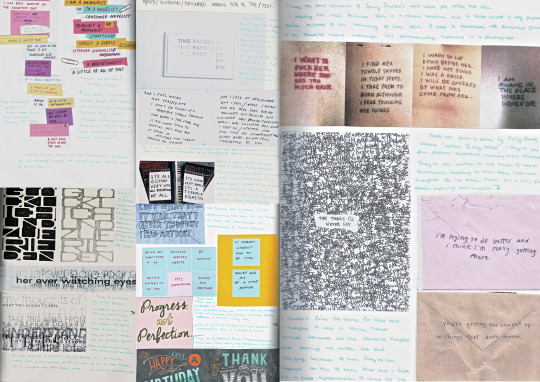
I looked at some different artists who just use typography and text to get some ideas and inspiration. The things I like most are very small, detailed and intimate because I think they portray a way of documenting thoughts and feelings, but because the brief is to make each page a3 size, this would not really be appropriate.
Within my research I found Jenny Holzer’s pieces, where she writes onto skin in ink, recounting sex crimes.
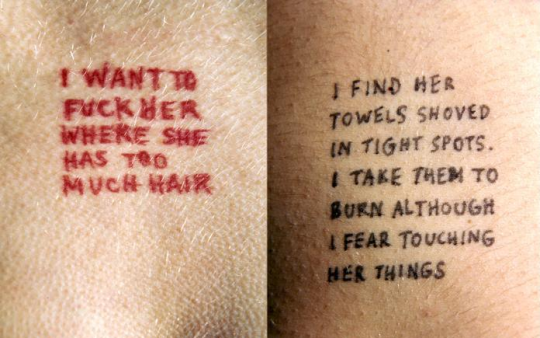

The creepy, honest, personal accounts work really effectively written onto the skin because it’s so intimate and delicate, and being that close up to skin creates the feeling of being very vulnerable. I then used this idea as using skin as a surface and wrote onto my skin.
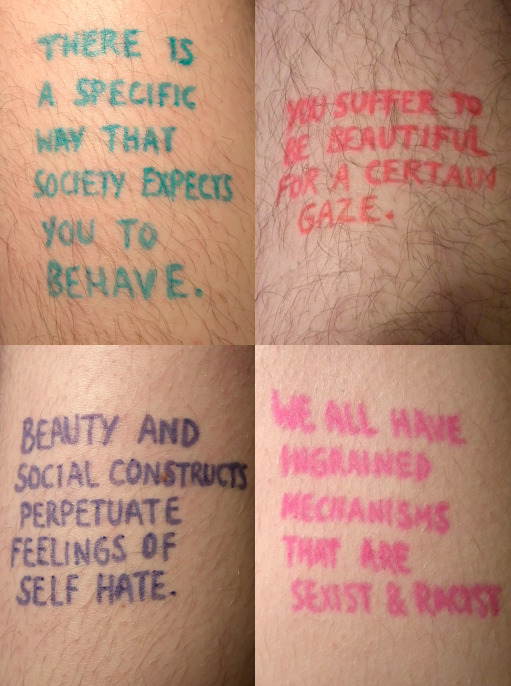
Using skin as a surface was also really relevant for my quotes because I’m talking about society’s expectations of the way women ‘should’ look - as hairless, but my body hair goes against this and shows the reality of what women look like when they don’t follow these standards created by them for society.
I also looked at Tracy Emin’s textiles banner pieces.

These were really relevant to me, and she was playing with this same contradiction I had been experimenting with before, of using something traditionally feminine, but contrasting it with what the words were actually saying. The Tate’s summary of ‘hate and power can be a terrible thing’ says ‘They transform the concept of the traditionally nurturing, feminine craft of quilt-making into an arena for angry self-expression and revelation.’The words are very open and expressive, which is what I liked about the previous small, intimate works I looked at, but having these private thoughts displayed in a very large and accessible manner is very bold and interesting to see.
We also did a workshop where we were given a random article, and blank white booklet, and asked to make something in three colours, and all image or all text. My article was about rainfall causing toxic algae in a river that was polluting tap water. I chose to use all image because using all text was making me feel a bit stuck creatively. I used very abstract imagery, focusing mostly on colour and texture, and I found this exercise really helpful because it made me think about colour, techniques and use of space in a more creative way, so helped me feel more inspired about making my final book.
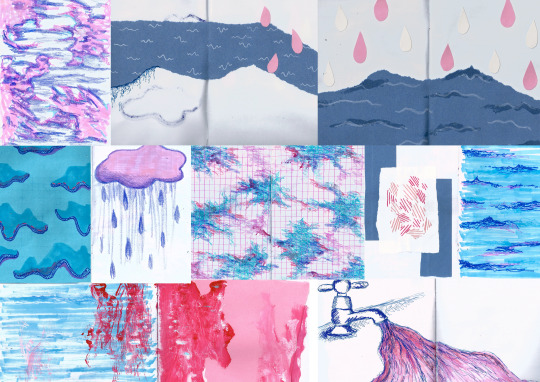

Using one sheet of a4 i created this zine on the use of derogatory words as an example of why feminism is still needed. I hand sewed the words again using this idea of sewing as something feminine and delicate, but contrasting it with the harsh words.

I took my watercolour experiment and scanned it turning it into a two tone image using pinks and blues, the gender stereotyped colours.

I looked back on all my research and the articles I had read to decide on 10 key quotes or statements that I wanted to create as 10 typographical posters, and then to go alongside each quote I would expand on it, and explain its meaning. The colours I want to use are shades of blue and pink because of how they stereotypically connote a certain gender - but through my pieces I am attempting to question and break down these stereotypes, then I will black and white for text and also use glitter as it is stereotypically feminine, but again through the text, will be challenging and questioning stereotypes.
The instructions of the brief said to consider, absorb and analyse world events or news over the coming weeks, and pick stories that interested you – ‘what would you like to comment on? raise awareness about? improve? Excite yourself and others – what do you want to announce to an audience?’ The thing I am most interested in and want to comment on and raise awareness about is feminism, in particular, the importance of intersectional feminism, and why gender roles are harmful.

I started by browsing the internet and reading a variety of articles on what was currently happening in the world in regards to feminism. Here are the links to some of the articles I looked at:
Women share their experiences of rejecting men’s sexual advances: http://www.independent.co.uk/news/world/women-share-the-consequences-of-rejecting-sexual-advances-on-blog-a6709241.html
Germaine Greer – Transgender women are not women: http://www.bbc.co.uk/news/uk-34625512
5 Young revolutionary feminists to listen to: http://www.dazeddigital.com/artsandculture/article/27149/1/the-five-young-revolutionary-feminists-you-need-to-listen-to
Mars’ use of the word hoe: http://www.dazeddigital.com/artsandculture/article/25862/1/the-new-art-movement-empowering-poc
Ayesha Siddiqi: http://www.theguardian.com/books/booksblog/2014/dec/09/ayesha-siddiqi-we-need-to-stop-waiting-for-permission
Tyler Ford on gender: http://www.theguardian.com/world/2015/aug/07/my-life-without-gender-strangers-are-desperate-to-know-what-genitalia-i-have
Happy Hippie Foundation: http://www.happyhippies.org/
Fannie Sosa:https://vimeo.com/123000371
https://i-d.vice.com/en_gb/article/nomadic-activist-fannie-sosa-spreads-the-word-and-teaches-twerk
http://www.aqnb.com/2015/04/21/an-interview-with-fannie-sosa/
Gender and advertisements: https://www.genderspectrum.org/blog/gender-and-advertisements/
I also looked at this article by Emily Hill called ’Feminism is over, the battle is won. Time to move on.’http://www.spectator.co.uk/2015/10/the-decline-of-feminism/
I felt most angered and affected by this article. This is a relatively young, supposedly intelligent, journalist, who is speaking so ignorantly, saying that we don’t need feminism anymore, because she personally doesn’t feel affected by issues surrounding feminism, she claims that feminists are ’draining the fun from life’. She said ’what started as a genuine crusade against genuine prejudice has become a form of pointless attention seeking.’ which is ridiculous because there is still so much genuine prejudice and huge amounts of inequality.
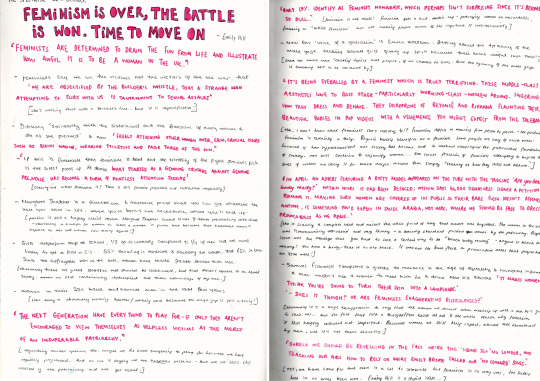
‘There is a specific way that society expects you to behave.’
‘You suffer to be beautiful for a certain gaze.’
‘Beauty and social constructs perpetuate feelings of self hate.’
‘We all have ingrained mechanisms that are sexist and racist.’
Post link
TB Hudson Newsagents, Seacroft Green, Leeds
From Leeds to London in The Guardian
(Peter Mitchell. 1974)
Post link
part 1. Queen backstage .


